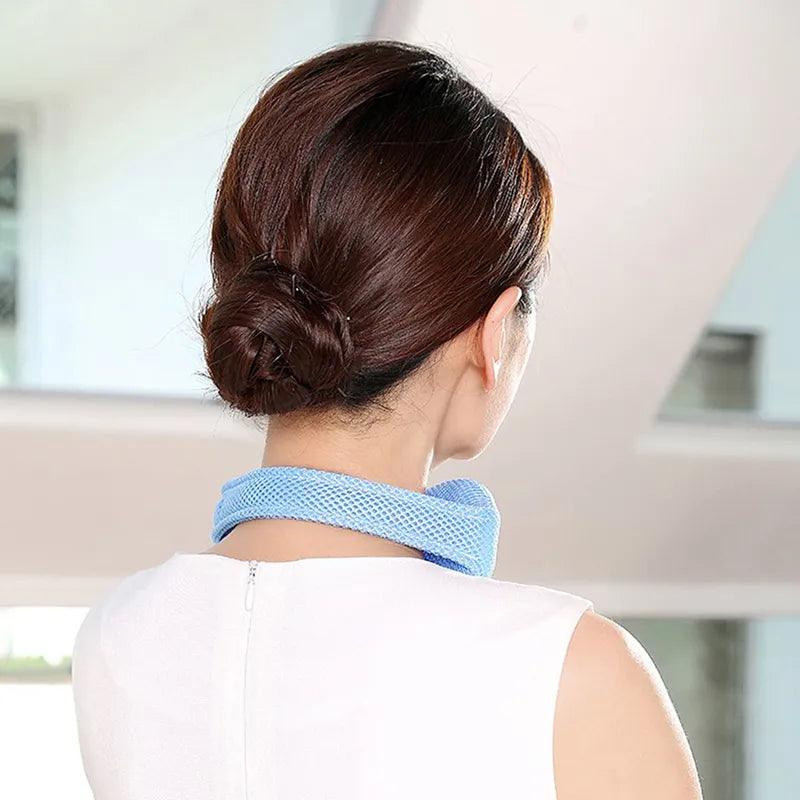If you've been told that you snore like a freight train or constantly wake up with a dry mouth, you're not alone. Millions of people struggle with snoring and mouth breathing during sleep. One solution that’s gained popularity in recent years is the anti-snore chin strap. But let’s get real—do chin straps actually work?
Let’s break down the science, personal experience, and expert opinions to help you decide whether a chin strap could be your sleep savior.
What Is a Chin Strap and How Does It Work?
An anti-snore chin strap is a simple-looking device made of elastic or neoprene fabric that wraps around your head and chin. Its main purpose is to keep your mouth closed during sleep, which encourages nasal breathing and helps reduce snoring.
Do Chin Straps Help Mouth Breathers?
Absolutely, especially if your mouth breathing is a habit rather than a medical necessity. When your jaw relaxes during sleep, it often drops open, leading to dry mouth, sore throat, and snoring. A chin strap gently supports the jaw, keeping it in a closed position and redirecting your breathing through the nose.
How Many Hours Should You Wear a Chin Strap?
You should wear your chin strap for the duration of your sleep, typically 6–8 hours. It's designed to be worn overnight and should not interfere with your comfort. Just make sure you follow the instructions for proper fitting.
What Does Wearing a Chin Strap at Night Do?
It promotes nasal breathing, reduces or even eliminates snoring, and can enhance your overall sleep quality. Many users report waking up more refreshed and with fewer nighttime interruptions.
Why Don’t Soldiers Wear Chin Straps?
This question gets asked a lot! Military helmets have chin straps for securing gear—not for stopping snoring. The chin straps soldiers avoid are for tactical and mobility reasons, not related to sleep or breathing. So, different use case entirely.
What’s Better: Mouth Tape or a Chin Strap?
Both options aim to stop mouth breathing, but they work differently. Mouth tape literally seals your lips shut, which can be uncomfortable or even unsafe for some users. Chin straps are generally safer and more adjustable. They also don’t leave sticky residue or interfere with facial hair.
How Tight Should a Chin Strap Be?
It should be snug but not tight. You want it to support your jaw without causing discomfort or cutting off circulation. If you're waking up with red marks or soreness, you might need to adjust the fit.
Should I Shave My Chin for a Chin Strap?
Not necessary. Chin straps are designed to work with or without facial hair. That said, if you have a very thick beard, you may want to choose a strap with more adjustability to ensure a secure fit.
Are Snoring Chin Straps Safe?
Yes, when used correctly. They are made from soft, breathable materials and are engineered to be safe for overnight use. However, if you suffer from sleep apnea or other respiratory issues, consult your doctor before using one.
When Can I Stop Wearing a Chin Strap?
This depends on your reason for using it. If you're using it for occasional snoring, you might not need it every night. But if it's addressing chronic mouth breathing or snoring, it may become a long-term sleep accessory. Some people even use it as a training tool to develop nasal breathing habits over time.
Final Thoughts
Anti-snore chin straps may not be glamorous, but they are incredibly practical. Whether you’re tired of waking up with a dry mouth or your partner is begging for quiet nights, a chin strap might be just the thing you need. They’re non-invasive, easy to use, and surprisingly effective for many people.
And hey—better sleep equals better life, right?

